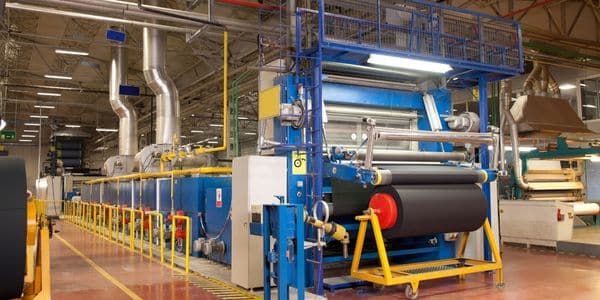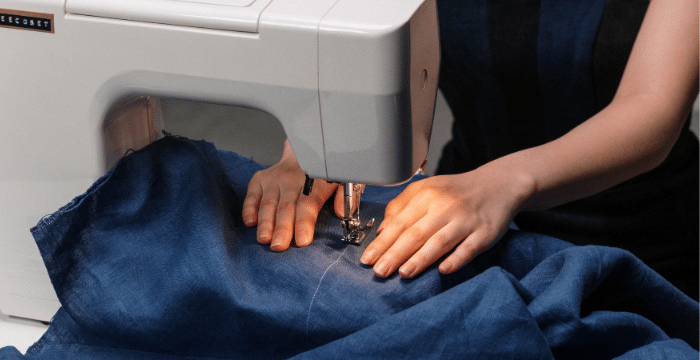Textile manufacturing involves a complex process that transforms raw fibers or materials into finished textile products through the use of specialized machinery and skilled labor. In today’s fiercely competitive industry, textile manufacturers are constantly striving to enhance their operational efficiency, minimize costs, and meet the dynamic demands of customers.
To achieve these goals, an increasingly popular solution is the integration of advanced software into textile manufacturing processes. Whether it’s a small-scale operation or a large production facility, incorporating technology-driven approaches can provide a competitive edge, enhance customer satisfaction, and drive business growth in the ever-evolving textile industry.
What is Textile Manufacturing?
The term refers to the process of converting raw fibers or materials into finished textile products through various stages such as spinning, weaving or knitting, dyeing, printing, and finishing. It involves the use of specialized machinery, equipment, and skilled labor to produce a wide range of textile products including clothing, home furnishings, industrial textiles, and more.
Textile manufacturing is a complex and intricate industry that requires precision, quality control, and efficient production processes to meet the demands of businesses. From sourcing raw materials to producing finished goods, textile manufacturing involves careful planning, coordination, and adherence to industry standards to ensure the production of high-quality textiles that businesses can use in various applications.
Textile Manufacturing: Then and Now
Historical textile manufacturing was characterized by labor-intensive processes and traditional techniques. In the past, textile production was primarily localized, with small-scale operations relying on manual labor for tasks such as spinning, weaving, and dyeing. Textiles were often produced using basic tools and equipment. This resulted in relatively low production capacity, longer lead times, and limited customization options.
In contrast, modern textile manufacturing has undergone a revolutionary transformation with the advent of advanced technologies and automation. Today, textile production has become highly mechanized, with large-scale factories employing state-of-the-art machinery and equipment. These technological advancements have drastically increased production capacity, reduced labor costs, and enabled faster production cycles.
Why is Manufacturing Software Important for Textile Manufacturing?
In today’s competitive landscape, investing in robust manufacturing software is essential for businesses to stay agile, competitive, and profitable. This section will explore the specific reasons manufacturing software is important for textile manufacturing.
Organized production process
Manufacturing software has features such as production planning, scheduling, and workflow management. It enables businesses to efficiently manage production workflows, track progress, and monitor performance in real-time. This ensures smooth operations and minimizing delays or bottlenecks.
Workflow and inventory management
Manufacturing software plays a pivotal role in optimizing workflow and inventory management. Manufacturing software provides businesses with tools for seamless workflow management, including production planning, scheduling, and tracking. All of this ensures that companies are able to streamline and coordinate all production processes well.
Order fulfillment management
Manufacturing software helps businesses manage orders from inception to delivery, including order entry, production scheduling, material procurement, and shipping. It ensures that orders are processed promptly, production is scheduled efficiently, and materials are procured in a timely manner. This helps textile manufacturers fulfill orders on time, meet customer expectations, and maintain high levels of customer satisfaction.
Also Read: Best Software Automation Feature in Textile Industry
Manufacturing Software Recommendation
Investing in a comprehensive manufacturing software solution can greatly enhance operational efficiency and productivity. One such recommended software is Hash Manufacturing Automation. It has plenty of useful features including controlled inventory and procurement as well as comprehensive reports. In addition, the software is capable of calculating the costs of works in progress (WIP).
With its user-friendly interface and customizable features, each textile manufacturing business can tailor Hash Manufacturing Automation to their specific requirements. By leveraging Hash Manufacturing Automation, textile manufacturers can improve overall operational efficiency, leading to enhanced profitability and customer satisfaction.
Conclusion
In today’s competitive industry, efficiency and productivity are key drivers of success. Advanced software solutions, such as manufacturing software tailored for the textile industry, offer businesses the tools they need to streamline their operations and gain a competitive edge.
One such software that can help the operations in the textile industry run smoothly is Hash Manufacturing Automation. By investing in a comprehensive manufacturing software solution, businesses can achieve better control over their production processes. Get a free demo now and make your textile business thrive!




































